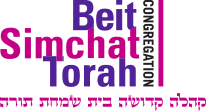
The Truth About Truths
By Rabbi Mike Moskowitz, Scholar-in-Residence for Trans and Queer Jewish Studies
וַיְחִ֤י יַעֲקֹב֙ בְּאֶ֣רֶץ מִצְרַ֔יִם שְׁבַ֥ע עֶשְׂרֵ֖ה שָׁנָ֑ה וַיְהִ֤י יְמֵֽי־יַעֲקֹב֙ שְׁנֵ֣י חַיָּ֔יו שֶׁ֣בַע שָׁנִ֔ים וְאַרְבָּעִ֥ים וּמְאַ֖ת שָׁנָֽה׃
And Jacob lived in the land of Egypt seventeen years; and the days of Jacob – the years of his life – were one hundred and forty-seven years.
Genesis 47:28
In a world filled with lies, living a life of truth comes at a price. The book of Micah ends [1] with the prophet asking God to “grant truth to Jacob – תִּתֵּ֤ן אֱמֶת֙ לְיַֽעֲקֹ֔ב.” Although Jacob is associated with honesty, his life is filled with challenges related to truth: either his truthfulness or that of those around him. From claims of being the first born son to his resting place in the cave in Hebron, and all of the shady tricks from Laban of wife and wage shifting in between, the test of being truthful accompanies Jacob wherever he goes.
The rabbis recognize two categories of truth; one acquired through the study and fulfillment of Torah [2], and the other through using that wisdom to acknowledge that we really don’t know the precise truth of the universe, while still attaching ourselves to the Master of the Universe whose signature is truth [3] – חוֹתָמוֹ שֶׁל הַקָּדוֹשׁ בָּרוּךְ הוּא ״אֱמֶת״. This dichotomy is reflected in God’s response [4] to Moses when asked how the Israelites should identify God: “אֶֽהְיֶ֖ה אֲשֶׁ֣ר אֶֽהְיֶ֑ה – I am who I am.” [5]
“I am – אֶֽהְיֶ֖ה” has a numerical value of 21 which when multiplied by itself equals 441, the value of the Hebrew word for “truth – אמת.” Relating to one aspect of truth helps us to connect to the other [6]. The letter in the Hebrew Alphabet that functions to bring these two realities together is the letter “vuv – ו”, known as the “vuv hachibor – the vuv that connects.”
The letter “vuv” and the patriarch Jacob are surprisingly entwined. In the mystical work of the Zohar, the “vuv” is described as “אוֹת אֱמֶת – the letter of truth” [7] and represents Jacob in the Tetragrammaton [8] – י-ה-ו-ה-. The letter “vuv” also introduces the opening passage of “the life of Jacob – וַיְחִ֤י יַעֲקֹב֙” and offers a subjective perspective on an otherwise objective statement of years lived.
Jacob’s son Joseph was 17 years old when he was sold into slavery and was reunited with his father for the last 17 years of Jacob’s life for a total of 34 years. The numerical value of the word “וַיְחִ֤י – and he lived,” is also 34, as if to say that Jacob only felt alive when he was with Joseph [9]. This could also explain why the verse, that summarizes Jacob’s life, puts an emphasis on his last 17 years. It implies that for Jacob, those 17 years felt like the only time that he was actually living.
Jacob maintains this narrative when Pharaoh asks him his age when he arrives in Egypt [10]. “Few and hard have been the years of my life, but they do not reach the life spans of my ancestors.” [11] While it is true that Jacob will die at 147, 33 years younger than his father Isaac, Jacob seems to make this declaration prematurely. At the time of the conversation Jacob is 50 years younger than Isaac was when he passed away, and very much alive as he talks to Pharaoh.
In fact, the rabbis posit that it was because Jacob adopted this negative autobiographical take that he died prematurely [12]. The Daas Zekeinim [13] points out that there are exactly 33 words in these two verses, which each cost him one year of life. It is noteworthy that this calculation includes the question itself. Because Jacob so believed the story that he told himself, he carried with him an unmistakable air of suffering. Upon seeing him, Pharaoh was prompted to ask,’How old are you?” Jacob’s life is shortened by thirty three years not just for the negative answer that he gives Pharaoh, but also for his demeanor that prompted the question.
The Midrash relates a harsh conversation between Jacob and God where God presents a competing truth to Jacob’s brief account to Pharaoh. God reminds Jacob of the many instances of Divine kindness. “Didn’t I save you from your brother who was trying to kill you? And return Dinah to you after she was kidnapped and assaulted? I also reunited you with Joseph, and you are kvetching about how rough your life has been?”!
God’s argument can really only be understood as truthful from God’s point of view. From ours, these are horrible and traumatic experiences in which God intervened, after they occurred, in order to prevent them from being even more horrific. While it might be appropriate to be grateful for the acts of Divine assistance, these awful events certainly didn’t make for an easy life.
Heavenly decrees, gezerot – גזר, emanate from a place that is beyond our understanding and intuition. However, our inability to comprehend something doesn’t make it untrue. “גזר – decree” has a numerical value of 210, just like the phrase “ יְחִ֤י יַעֲקֹב֙ – y’chi yaakov – Jacob lived,” suggesting that an experience of challenging tests invites us to have faith in the ultimate truth in God’s role as our ally – chaver – חבר – also equalling 210.
Knowing that we don’t always know how to make sense of tragedies can free up the possibility that beyond the limits of our own intellect lies a truth that comforts the past and better informs the future. We know that God’s perspective is infinitely more encompassing than our own.
Having faith in God’s providence not only expands our capacity for holding bigger truths, it also allies us with the greater goodness of God’s plan.
[1] Micah 7:20.
[2] See Avodah Zarah 4b.
[3] Shabbat 55a.
[4] See Rav Yechezkel of Kazmir.
[5] Exodus 3:14.
[6] See Divrie Yisroel.
[7] Zohar, Vayikra 1:5.
[8] See Tzufonas Chein page 286.
[9] Baal Haturim.
[10] Genesis 47:8.
[11] Genesis 47:9.
[12] See Sichos Mussar.
[13] One of the authors of the Tosephot.
